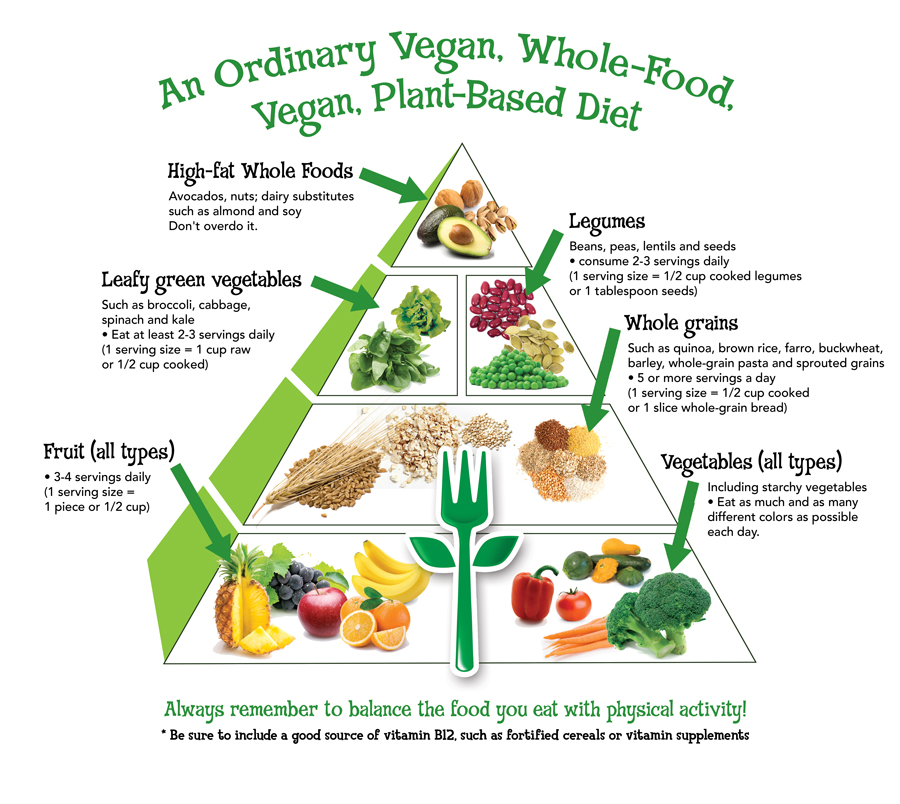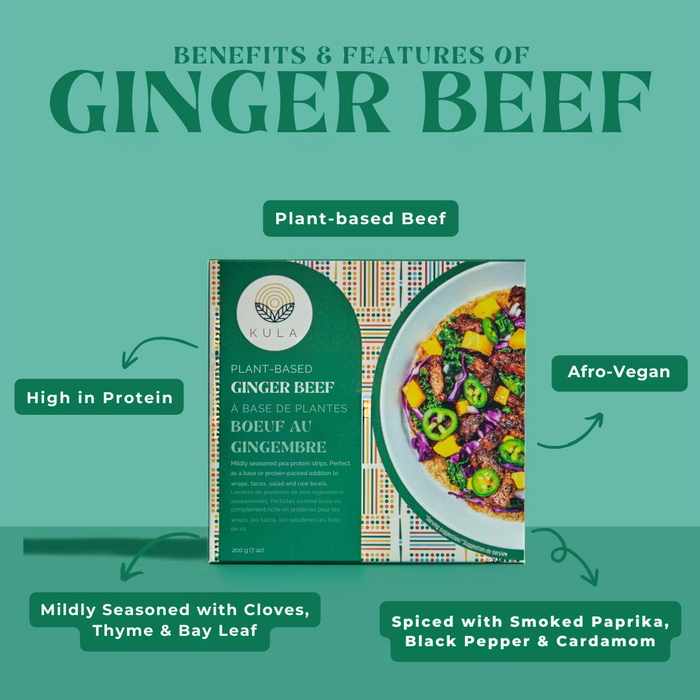Are Sugar Free Sauces Actually Healthy? A Breakdown for Plant-Based Eaters
Are Sugar Free Sauces Actually Healthy? A Breakdown for Plant-Based Eaters
Blog Article
All Concerning Healthy Food: Benefits of Embracing Plant Based Options
The conversation surrounding plant-based diet plans has actually gained significant focus over the last few years. Lots of people are checking out the potential health and wellness benefits, dietary benefits, and ecological effects related to these dietary selections. As people end up being much more knowledgeable about their food's impact on wellness and sustainability, concerns emerge about the usefulness of adopting such a lifestyle. What certain adjustments can one expect, and just how might these choices improve not just individual health yet also the earth's future?
Recognizing Plant-Based Diets
Many individuals connect plant-based diets generally with vegetarianism or veganism, these diet plans can incorporate a large variety of consuming patterns that prioritize whole, minimally processed plant foods. Such diet regimens frequently include fruits, veggies, whole grains, legumes, seeds, and nuts, while removing or restricting pet products. This adaptability allows people to customize their nutritional choices according to dietary requirements and individual choices. Some might adopt a primarily plant-based diet while still sometimes consuming meat or milk, usually described as a flexitarian technique. The focus remains on including even more plant foods, which can bring about a varied selection of meals and tastes. Comprehending these various analyses of plant-based consuming is important for appreciating its access and charm in contemporary food society.
Health Advantages of Plant-Based Foods
The health and wellness advantages of plant-based foods are considerable, providing a nutrient thickness advantage that supports general well-being. Research study indicates that these foods can enhance heart health and play a necessary role in reliable weight administration. By integrating more plant-based alternatives, people may improve their dietary choices and advertise long-term health.
Nutrient Thickness Benefit
Nutrient thickness plays a necessary role in the health and wellness advantages of plant-based foods, making them a compelling selection for those seeking a balanced diet regimen. Plant-based foods, such as fruits, vegetables, vegetables, nuts, and whole grains, are frequently rich in essential vitamins, minerals, and anti-oxidants while being reduced in calories. This high nutrient density permits individuals to take in less calories while still fulfilling their dietary needs. Furthermore, these foods are packed with nutritional fiber, advertising digestive system wellness and aiding in weight management. By incorporating nutrient-dense plant-based choices, customers can boost their overall health and wellness, support their body immune systems, and minimize the danger of chronic illness. Eventually, the nutrient thickness of plant-based foods emphasizes their value in a health-conscious way of living.
Heart Health Enhancement

Weight Monitoring Support
Along with advertising heart health and wellness, a plant-based diet plan can significantly help in weight management. This nutritional approach stresses whole foods such as fruits, vegetables, vegetables, nuts, and entire grains, which are normally lower in calories and higher in fiber compared to animal-based items. The high fiber content aids increase satiation, minimizing total calorie intake. Moreover, plant-based diet plans are often rich in necessary nutrients while low in unhealthy fats, making it simpler to maintain a healthy and balanced weight. Plant Based Beef. Research study indicates that people who adopt a plant-based way of living often tend to have reduced body mass indexes (BMIs) and experience more effective weight-loss compared to those that eat meat-heavy diet regimens. Subsequently, welcoming plant-based choices is a critical selection for efficient weight monitoring
Nutritional Worth of Plant-Based Active Ingredients
Plant-based active ingredients are rich in important nutrients, supplying a varied array of vitamins, minerals, and antioxidants that add to total wellness. A contrast of protein sources discloses that while animal products are commonly deemed remarkable, lots of plant-based alternatives supply adequate healthy protein and various other helpful compounds. Comprehending the nutritional worth of these ingredients can help individuals make notified dietary options.
Necessary Nutrients in Plants
Nutrient-rich ingredients located in plants provide a diverse range of crucial vitamins and minerals that contribute greatly to general health and wellness. These ingredients are abundant in vitamins A, C, and K, which support immune feature, vision, and blood clotting, respectively. In enhancement, plants give vital minerals such as calcium, magnesium, and potassium, crucial for heart health and wellness, muscle function, and bone stamina. The visibility of fiber in plant-based foods help digestion and promotes a healthy and balanced digestive tract microbiome. Anti-oxidants, located abundantly in vegetables and fruits, help combat oxidative tension and decrease inflammation. Additionally, many plant foods are reduced in calories yet high in nutrients, making them an outstanding option for those looking for to keep a healthy and balanced weight while guaranteeing ideal nutrient intake.
Comparing Protein Resources
Protein resources vary considerably in their nutritional profiles, with plant-based components offering one-of-a-kind benefits. Unlike animal proteins, which usually include hydrogenated fats and cholesterol, plant proteins often tend to be reduced in these undesirable parts. Legumes, nuts, seeds, and whole grains are abundant in essential amino acids, fiber, vitamins, and minerals. Lentils provide high healthy protein material along with significant iron and folate, while quinoa is a total healthy protein, providing all nine crucial amino acids. Furthermore, plant-based healthy proteins are typically accompanied by antioxidants and phytochemicals that sustain total wellness. The shift to plant-based protein sources not just enhances dietary intake however additionally straightens with lasting nutritional practices, lowering ecological effect and advertising long-term wellness advantages.
Ecological Effect of Plant-Based Eating
As awareness of climate modification expands, many people are exploring sustainable nutritional choices that can considerably reduce their environmental impact. Plant-based consuming has actually arised as a considerable factor to reducing greenhouse gas emissions, which are primarily related to livestock production. The cultivation of fruits, grains, vegetables, and beans usually calls for fewer sources, such as water and land, contrasted to pet farming. Furthermore, plant-based diet regimens can lead to decreased logging, as much less land is needed for grazing animals or expanding animal feed. By moving towards plant-based alternatives, consumers can support biodiversity and promote much healthier environments. In general, accepting plant-based consuming not only benefits individual health yet additionally represents an find important action toward ecological see here now sustainability and preservation initiatives.
Conquering Common Misconceptions
While lots of individuals acknowledge the advantages of a plant-based diet plan, a number of mistaken beliefs typically discourage them from completely embracing this way of living. A typical belief is that plant-based diets do not have enough protein; nonetheless, numerous plant resources, such as legumes, nuts, and tofu, give adequate protein. Furthermore, some presume that this diet regimen is expensive, when actually, staples like beans, rice, and seasonal vegetables can be rather affordable. Another misconception is that plant-based consuming is overly restrictive, whereas it really provides a varied array of tastes and foods. Several stress that a plant-based diet plan may lead to shortages, yet with appropriate planning, individuals can acquire all required nutrients, consisting of vitamins and minerals, while enjoying a vast selection of scrumptious meals. Vast Tips for Transitioning to a Plant-Based Way of living
Making the shift to a plant-based lifestyle can be an improving experience, though it often requires some guidance to browse the initial changes. People are encouraged to begin gradually, including even more fruits, veggies, vegetables, and whole grains into their dishes while decreasing meat and dairy usage. Meal planning is essential; preparing a regular menu can aid ease the change and prevent last-minute unhealthy selections. Checking out cooking methods and brand-new recipes can likewise improve the experience and maintain exhilaration concerning plant-based eating. Furthermore, signing up with support teams or neighborhoods can give inspiration and share important ideas. Ultimately, staying notified regarding nourishment assurances well balanced dishes, protecting against shortages while promoting a healthy and balanced, gratifying plant-based way of life.
Delicious Plant-Based Meal Ideas
Discovering tasty plant-based dish concepts can inspire individuals to embrace a much more nourishing diet plan. One popular choice is a passionate quinoa salad, featuring cherry tomatoes, cucumber, and a vibrant lemon-tahini dressing. One more fave is a mouthwatering lentil stew, packed with carrots, celery, and fragrant natural herbs, excellent for a soothing dinner. For breakfast, overnight oats made with almond milk, chia seeds, and topped with fresh berries give a nourishing begin to the day. In addition, a vibrant vegetable stir-fry with tofu and a selection of colorful veggies can be a quick yet pleasing meal. Lastly, creamy avocado salute on whole-grain bread, sprinkled with spices and seeds, offers a basic yet savory treat. These dishes display the selection and richness of plant-based eating.

Often Asked Concerns
Can a Plant-Based Diet Regimen Give Enough Healthy Protein?
The question of whether a plant-based diet plan can supply sufficient healthy protein is common. Various resources, consisting of vegetables, nuts, seeds, and entire grains, can satisfy protein needs effectively, sustaining a nutritious and well balanced diet for people.
Are Plant-Based Diets Suitable for Children?
The viability of plant-based diets for kids depends on mindful preparation. Adequate nutrients have to be ensured, including vitamins, minerals, and proteins. With appropriate guidance, such diet plans can sustain healthy and balanced development and advancement in kids.
Just how Do I Dine Out on a Plant-Based Diet regimen?
Dining out on a plant-based diet includes looking for dining establishments with diverse food selections, asking for alterations, and exploring vegan-friendly choices. Preparation ahead and interacting nutritional choices can improve the eating experience while preserving nutritional options.
What Prevail Irritants in Plant-Based Foods?
Usual allergens in plant-based foods consist of soy, gluten, nuts, and seeds - Plant Based Beef. Individuals complying with a plant-based diet plan must know these allergens and check out tags carefully to prevent unfavorable responses and assure secure intake
Can Plant-Based Diets Help With Weight-loss?
Research suggests that adopting a plant-based diet regimen may assist in fat burning due to its typically lower calorie thickness and higher fiber web content. This combination can enhance satiation, helping people manage their caloric consumption successfully. Lots of individuals associate plant-based diet regimens primarily with vegetarianism or veganism, these diet regimens can encompass a large array of eating patterns that focus on whole, minimally refined plant foods. Nutrient thickness plays an essential function in the wellness advantages of plant-based foods, making them a compelling choice for i thought about this those looking for a well balanced diet. Plant-based diets have actually been shown to markedly boost heart wellness, as they often include aspects that support cardio function. In enhancement to promoting heart wellness, a plant-based diet plan can considerably assist in weight administration. A common idea is that plant-based diet plans do not have enough protein; nonetheless, countless plant resources, such as legumes, nuts, and tofu, give adequate protein.
Report this page